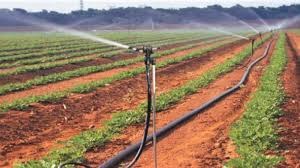The Ruti Irrigation Scheme, a lifeline for thousands of smallholder farmers in Buhera and Gutu Districts is facing an uncertain future as water levels in its primary source, the Ruti Dam, continue to deplete. The alarming drop in water levels threatens not only the livelihoods of the farmers but also the food security of the region.
Situated on the Buhera-Gutu District boundary, the Ruti Irrigation Scheme has long been hailed as a model for agricultural resilience in the face of climate change. The scheme supports over 800 households, producing vital crops such as maize, beans, and vegetables.
However, the water levels in Ruti Dam have plummeted to record lows this year due to a combination of erratic rainfall patterns and prolonged dry spells as a result of climate change.
Experts warn that if the situation does not improve soon, the scheme could be rendered impossible, leaving farmers and their families in dire straits.
“The water levels have never been this low. We are witnessing a situation where our crops are wilting. It’s a nightmare for us because we depend on this land for our survival,” said Kudakwashe Mazuru, a member of the Ruti Irrigation Scheme
Experts have warned that without significant investment in water conservation and management strategies, schemes like Ruti could become increasingly vulnerable.
“The issue here is not just about one irrigation scheme; it’s about the sustainability of our agricultural practices in the face of climate change. We need to adopt more resilient and adaptive approaches to agriculture, including better water management practices and infrastructure development, to ensure that our farmers can continue to produce food and support their families,” said Blessing Musakwa a climate change communicator.



